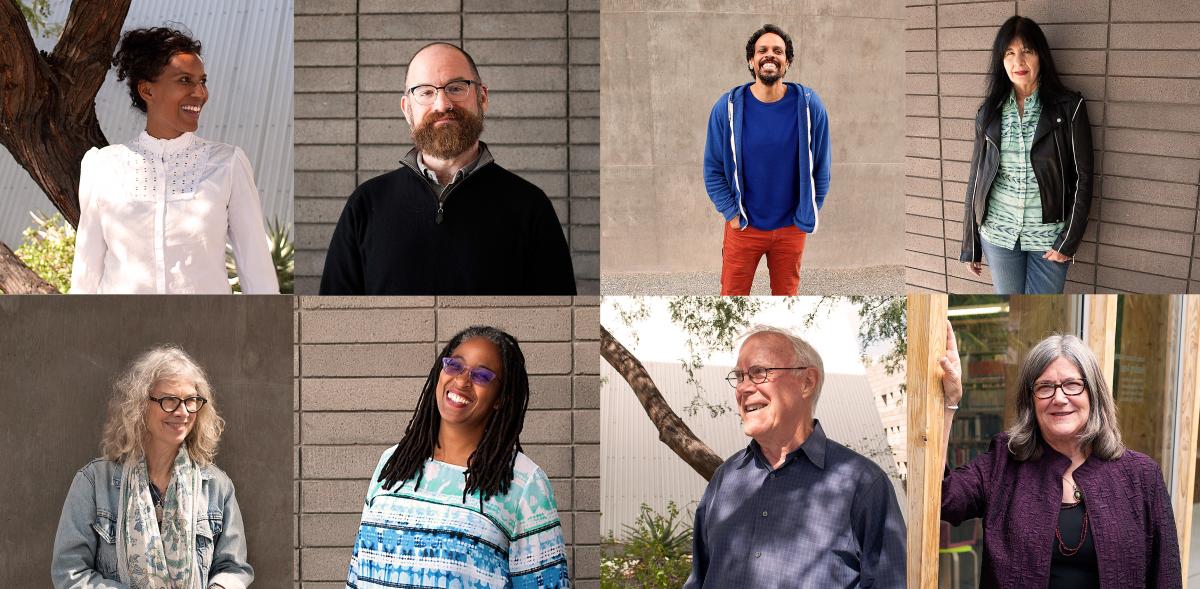
Photo credit: Hannah Ensor
Around a year and a half ago, we invited eight of our favorite contemporary poets to Tucson to talk with us about climate change and poetry. We wrote to Aracelis Girmay, Brenda Hillman, Brian Teare, Camille Dungy, Joy Harjo, Robert Hass, and Ross Gay, inviting them to present what we were calling “investigative readings”—part poetry reading, part talk. We also invited our friend Alison Hawthorne Deming, who we're fortunate enough to have here at the University of Arizona.
To all of the presenters, we asked the same pair of core questions: What role does poetry have in envisioning, articulating, and/or challenging, our ecological present? And what role does poetry have in anticipating our future, in imagining otherwise?
At the end of each night, I left with my jaw on the floor at the beauty, the magnitude, the generosity, and the fierce intelligence of the eight poets who joined us. Each brought crucial approaches from their own personal curiosities, quandaries, struggles, entry points. Poets, in general, are a group of people who practice dedication and imagination as their way of being whole. These poets, in addition to that, have spent the greater part of their lives burrowing their ways into these questions, and finding a way to burst out the other side into communication, heart, potential. We got exactly what we were hoping for, in inviting Brenda and Bob, Camille, Aracelis, Joy, Ross, Brian, and Alison: commitment to the question, to breaking it open and seeing what’s inside. Within each of the eight presentations, hundreds of angles.
Even to go just by the numbers, it was a successful series—we saw 1200 audience members, meaning an average of about 170 people came to each of the seven nights, peaking at a standing-room-only crowd of 260 people out on a cold night to hear Joy Harjo (in Joy’s introduction, Pam Uschuk rightly said, “In many ways, Joy Harjo is the Poetry Center”). Two of our guests visited with K-8 students—Aracelis Girmay at the Tucson Museum of Art, and Ross Gay visiting Borton Elementary School as part of the Poetry Center’s Writing the Community program. All eight poets visited with University classes, and curated shelves in our library to correspond with their visits. There were three climate scientists—Diana Liverman, Gregg Garfin, and Karletta Chief—who presented in advance of a few of the readings, to add context and their own original research and findings, to the evenings. And two other local climate experts—Eric Magrane and Jonathan Overpeck—joined us here on the blog in the form of interviews.
But let’s get to the readings.
Brenda Hillman*
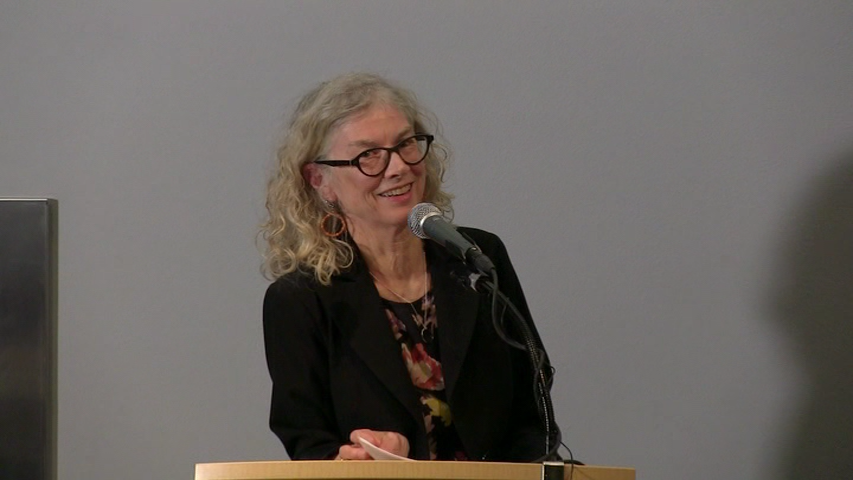
http://voca.arizona.edu/readings-list/136
*Link active only on-site at the UA Poetry Center
The best poetry, and the best poets, always make us want—or need—to do something with our bodies. I recommend listening to Brenda tell us what she does when she refills the tank of her car -- click on "Moaning Action at the Gas Pump." Feel free to take it as a lesson, a push, a prompt. As I wonder several times a week: WWBHD?
Also check out this gorgeous interview that Brenda did with local gem Yanara Friedland. And don’t forget: “Writing and activism, writing and parenting, writing and working at your job, writing and grieving, they are all talking to each other.”’
Robert Hass*
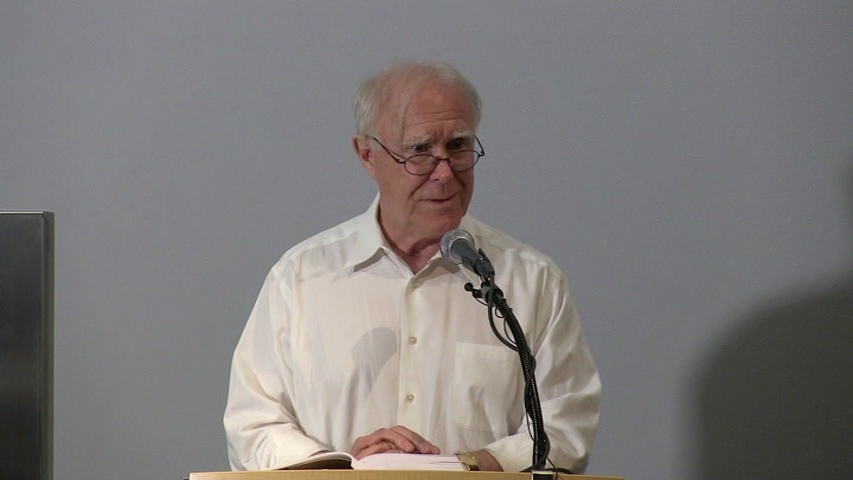
http://voca.arizona.edu/readings-list/89
*Link active only on-site at the UA Poetry Center
It’s not every day you’re visited by a Poet Laureate. It happens more often at the Poetry Center than other places I’ve worked, but in fairness, other places I’ve worked have not been centers for poetry. On October 6th, Robert Hass joined Brenda Hillman in presenting poems and responses to our climate moment, including a number of otherwise uncollected poems. It’s a tremendous reading—I especially recommend “The State of the Planet” and “Poem Not In Elegy in a Season of Elegies.”
Aracelis Girmay*
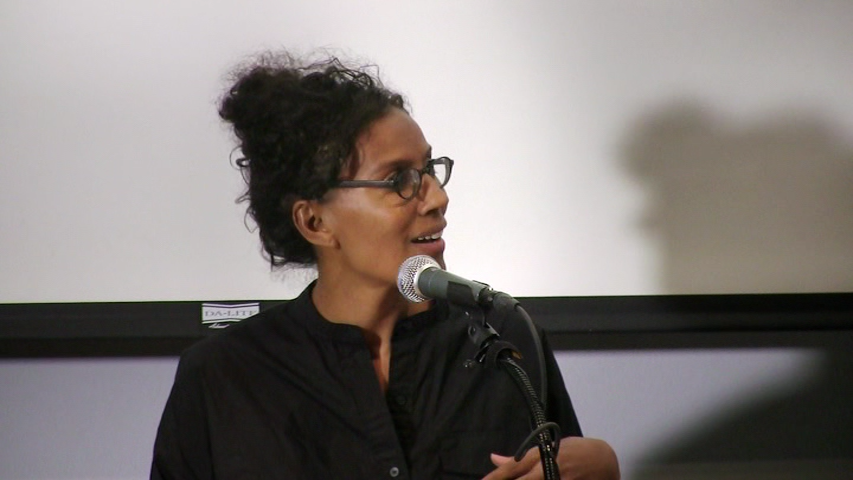
http://voca.arizona.edu/readings-list/3524
*Link active only on-site at the UA Poetry Center
Aracelis began with a deeply thoughtful talk, bringing in the voices of Robin Wall Kimmerer, Gloria Anzaldúa, Mahmoud Darwish, James Baldwin, Toni Morrison, Audre Lorde, Ann Cvetkovich, W.S. Merwin, Fanny Howe, and Ross Gay, among others. If you’ve got twenty minutes, this is how you should spend them. Aracelis’s presence is itself a school, and spending time in this way helps us foster our own beautiful hearts.
And speaking of schools, here is what writer & current Writing the Community student Wren Awry wrote about teaching Aracelis’s “luam,” which is a poem you can also listen to at voca, above.
* Brenda’s, Robert’s, and Aracelis’s readings are only available on-site in the Poetry Center. If you’re here, on our internet, you can click through on the links. If you’re not here, the links won’t take you where you want them to take you. I know you were looking for an excuse to come in and hang out with us. Well, here it is. You’re welcome.
Camille Dungy
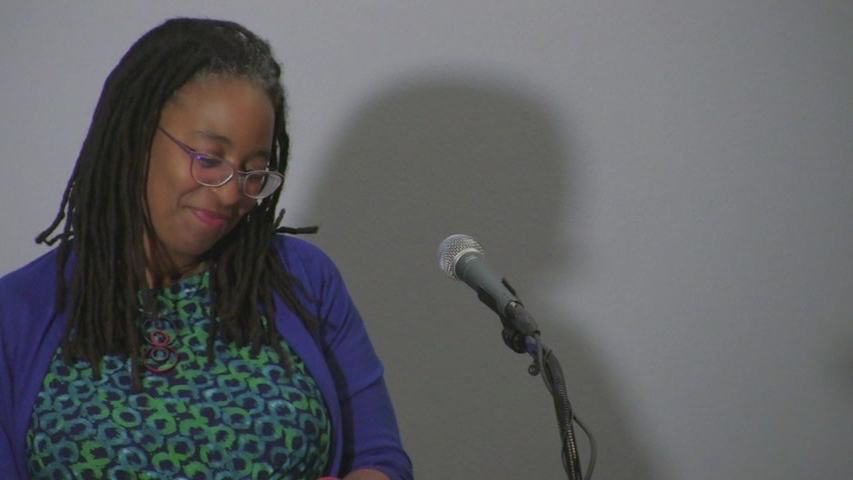
http://voca.arizona.edu/readings-list/548
Check out Camille’s explanation of her fascination with trophic cascades, and its resonances in her life and in her work, in advance of picking up her recently released book Trophic Cascade. Before she reads the poem (click on “Trophic Cascade”) she says, “There’s no way for me to think about how human intervention in the earth’s system is changing everything we know, everything we are, and everything our fellow inhabitants count on—everything about everything. How can my poems not be obsessed with these questions? How can I not—as my students voiced this week—be consumed by concerns about how my poems can participate in a conversation that might affect some kind of positive change?” This one is full of gems. Watch it all.
And also read this interview, in which Camille chats with Writing the Community student Benny Sisson about teaching, writing, expression.
Joy Harjo
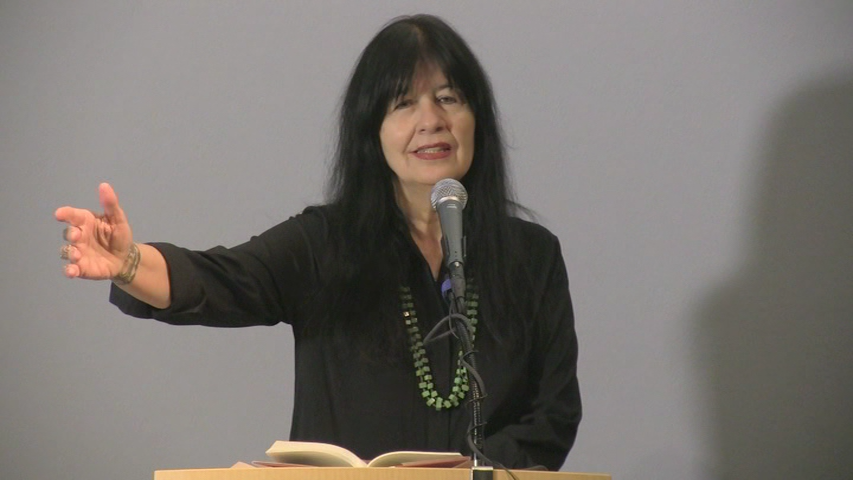
http://voca.arizona.edu/readings-list/53
I had no idea that Joy’s flute would, or could, transfer quite so well to video. Here she is, breaking us open, even through the internet. Click on “Opening Remarks and Song" to hear it. Keep listening to hear poems from the remarkable book Conflict Resolution for Holy Beings, as well as others from How We Became Human: New and Selected Poems. I love "Entering the Principality of O'ahu by Sky Roads," and I love her introduction to that short poem. Keep listening to hear songs and poems on the saxophone. In short: keep listening.
And for Joy’s curated library shelf, click here. You’ll recognize some of these books, and others you should come in and read immediately. As long as you’re here, re-read the ones you recognize.
Ross Gay
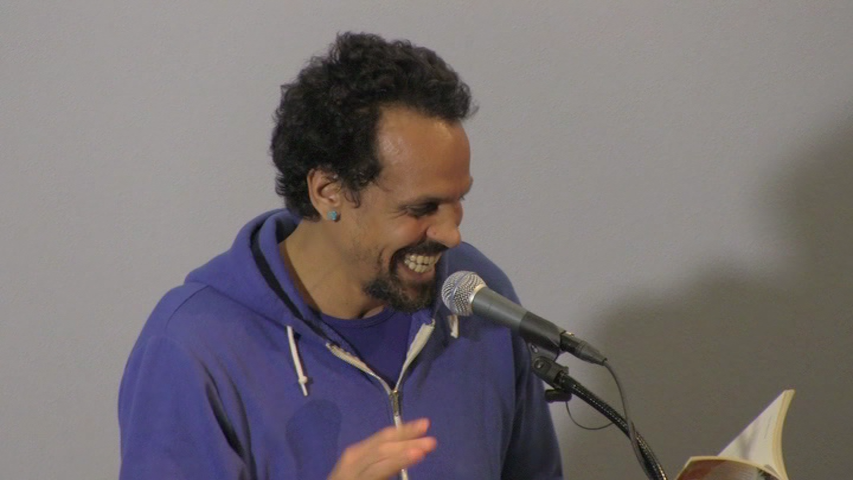
http://voca.arizona.edu/readings-list/3582
Open this link, and just click anywhere. Watch his Opening Remarks and “Sharing with the Ants.” Definitely watch “To the Mulberry Tree.” To hear a new genre of essay that Ross is calling “delights,” watch “Transplanting.” Let me know if you get to the end of “Catalog of Unabashed Gratitude” without running out of your house to hug the nearest stranger. Bonus points if that stranger, no longer a stranger, is Ross Gay.
And: read Writing the Community intern Saraiya Kanning’s article about taking Ross Gay to Borton Elementary School’s classroom and community garden here, and Writing the Community student Julia Kinu’s blog post on teaching Ross Gay here.
Brian Teare
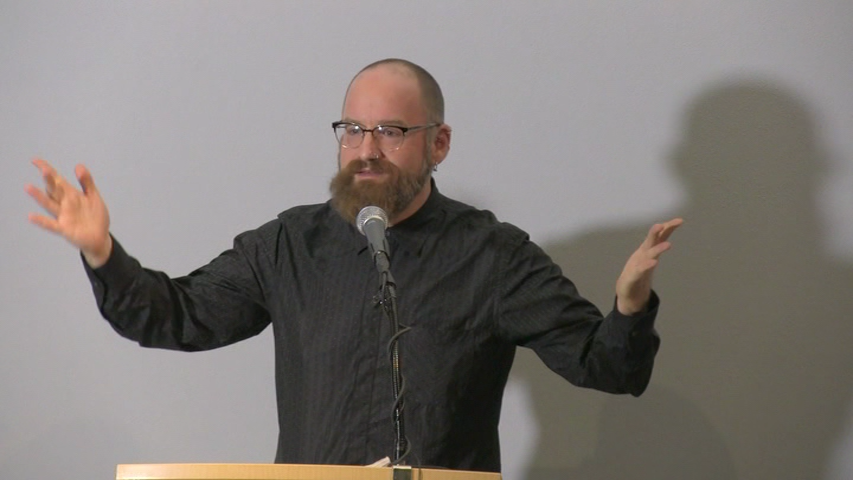
http://voca.arizona.edu/readings-list/3590
“Today’s gender is rain.” In addition to delivering a stunner of a talk to begin his reading (take out a notebook, follow along, feel free to pause and repeat), Brian Teare wrote an original poem just for us, just for this series. It’s my favorite new poem.
And to see his curated library shelf, a great reading list of contemporary ecopoetry, click here.
Alison Hawthorne Deming
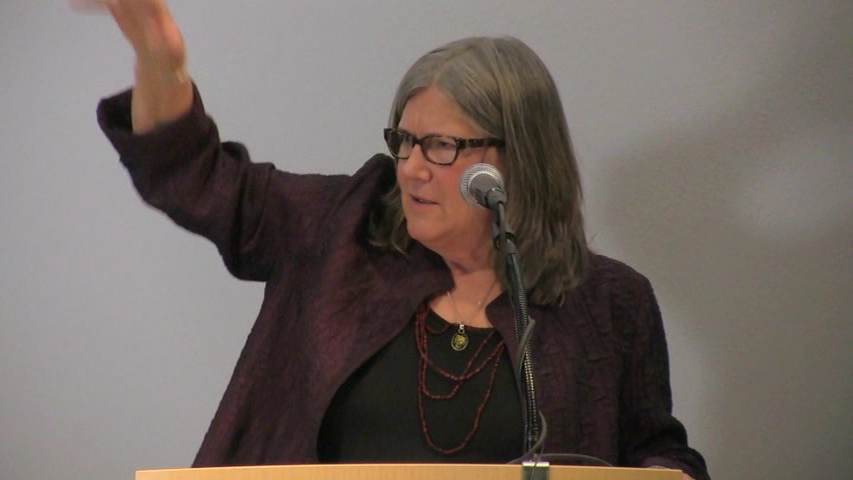
http://voca.arizona.edu/readings-list/167
Our friend Alison Hawthorne Deming wrapped up the series for us. There’s plenty in this recording, and I hope you listen through for yourself. But I’ll end where she starts: “We have arrived at a time when there is no border between lyric and political poetry. The lyric poem speaks the soul’s song on the stage of the present moment, and if the present moment is clouded by a threatening sky or toxic contaminants or disappearing species or toxic political discourse, the poem is listening and wants to speak. And speak it will, sing it will, celebrate and grieve, bear witness and investigate, mock and ameliorate. It’s our job as poets to cleanse the language of toxic residue, to cleanse the spirit of stultifying fear and despair. I’m grateful to be living during such a dynamic age for American poetry, and I have never believed more firmly in the need for our work.”
Yes. Yes.
So, what do poets have to say about climate change? This was just a mixtape. You’ll have to listen to the full recordings to get the answer—or, at least, eight (hundred) of a billion (and counting) answers.
Thanks, again and again, to our institutional partners for this series: Agnese Nelms Haury Program, College of Science, Confluencenter for Creative Inquiry, Institute of the Environment, and the Department of Africana Studies. Thanks always to the National Endowment for the Arts for its ongoing support of the Poetry Center and our programs.

